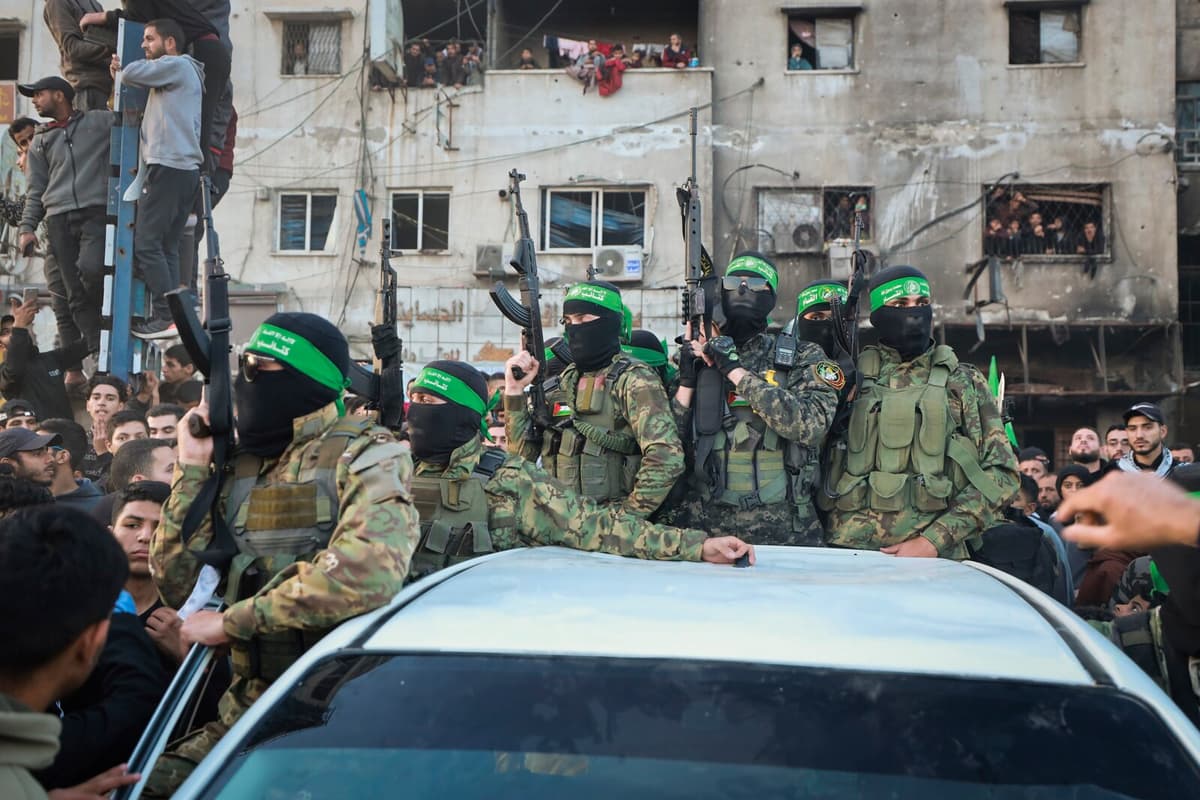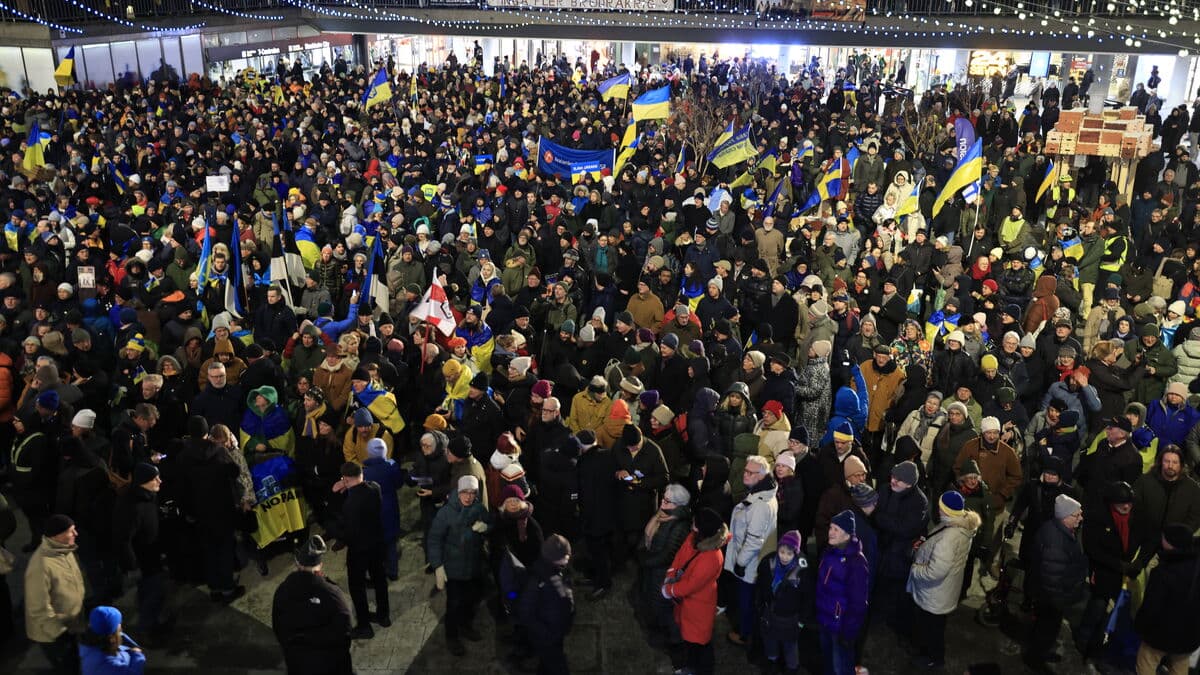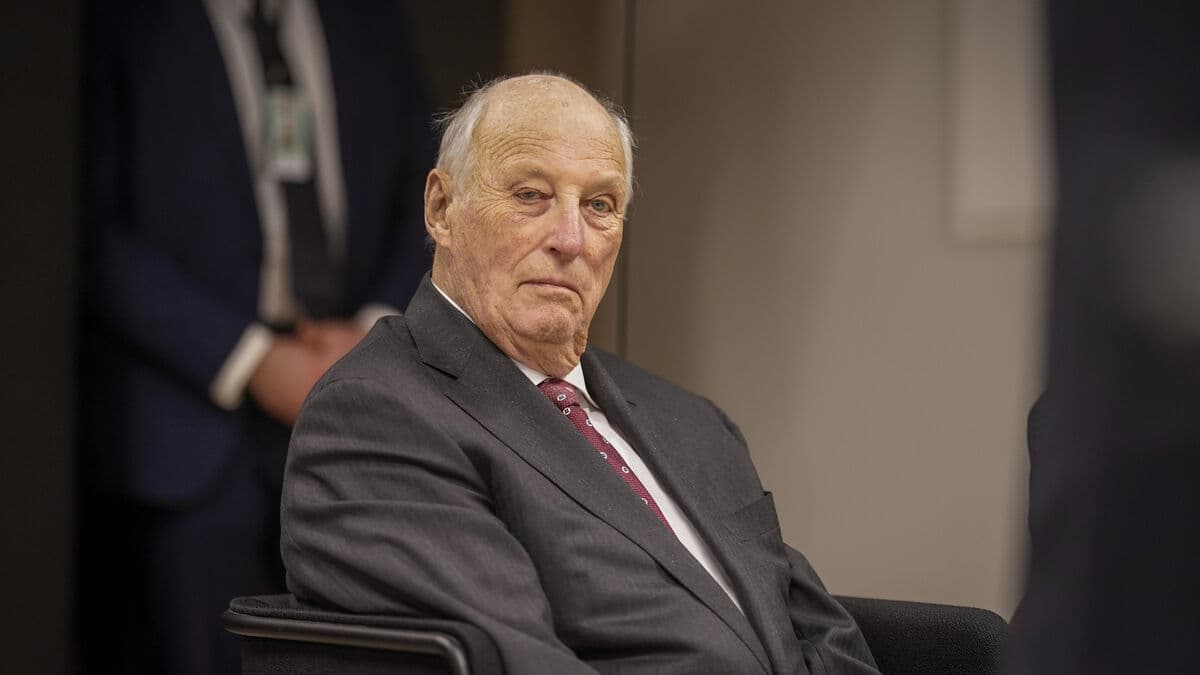When Gaza's residents returned to their war-torn homes over the weekend, they were met by police. The Hamas-controlled authorities' police forces had returned to work in large numbers.
The police have been here all the time, but they didn't wear their uniforms, says three-child father Mohammed Abed to AP as his family returns to the city of Gaza after seven months on the run.
They were among the displaced people in the tents. That's why there were no thefts there.
A spokesperson for the Hamas-controlled government apparatus claims in an interview with Reuters that 18,000 government employees have started working again.
Wearing green bands
During the war, which began with the terrorist-stamped Hamas' large-scale attacks on Israel in October 2023, when hostages were also taken, Israel has bombed large parts of Gaza. When offensives were directed at one place to get to Hamas, guerrilla warriors emerged elsewhere. The movement's enormous tunnel system appears to be largely intact.
When the ceasefire came into effect on Sunday and Israeli forces took a step back, the Palestinian Islamists made a show of power: When the first three hostages were handed over to the Red Cross, and trucks with supplies were on their way in, militiamen with green Hamas bands and automatic weapons stepped in and set up roadblocks.
Aid deliveries are reported to be continuing without incident.
Israel has killed most of Hamas' top leaders – but they have been replaced. The US former government claimed last week that the Islamist movement has managed to recruit "almost as many" fighters as the number who died in the war.
New negotiations
The ceasefire is only in its first phase. In addition to exchanges of hostages and prisoners, the parties will negotiate about future steps.
The Israeli government, which insists that Hamas must be "eliminated", stands and falls with extreme coalition partners who demand that the war be resumed. Hamas holds more hostages and demands a role in discussions about Gaza's future.
Hamas-critical Palestinians argue that a way must be found to move away from blockades and occupation if one wants to reduce the Islamist movement's influence among residents. Israel has so far opposed all proposals for alternative Palestinian governments.
However, it is not realistic to think that Hamas can be eradicated, writes Israeli intelligence analyst Michael Milshtein in Yedioth Ahronoth:
"In this situation, it is necessary to confront reality: 15 months into the most intense war in the Israeli-Palestinian conflict's history, Hamas, despite having suffered significant losses, remains Gaza's dominant force."
In 2006, the Islamist and terrorist-stamped Hamas movement won over the secular al-Fatah in a parliamentary election in Gaza. Hamas wanted to form a broad coalition with al-Fatah and other parties, but when these refused, Hamas formed its own government and established its own security force in Gaza.
Soon, bloody clashes broke out between supporters of Hamas and al-Fatah. Attempts to reach an agreement failed, and in 2007, Hamas expelled al-Fatah from Gaza and took over administration and police activities.
Since then, the Palestinian territories have had separate governments: Hamas has ruled Gaza, and the Palestinian Authority, under the leadership of al-Fatah, has had limited self-government on the occupied West Bank.
When Hamas took control of Gaza, Israel imposed a blockade on the area. Egypt has also treated Gaza more restrictively than before.
Militant Palestinian groups and Israel have fought several devastating wars since then, with the current one being the worst, claiming the most lives.
Terrorist-stamped Hamas attacked Israel on October 7, 2023. Then, around 1,200 people were killed, and around 250, mostly Israelis, were taken as hostages and brought to Gaza.
Israel responded by declaring war on Hamas and launching extensive airstrikes. Later, a ground invasion also began.
More than 47,000 people in Gaza have been killed in the Israeli attacks, according to the Hamas-controlled healthcare system. According to some estimates, the number is even higher. Most of Gaza's buildings have been razed, and nearly two million residents have been forced to flee.
After months of negotiations, a new ceasefire began on January 19 this year, initially for six weeks. The intention is to move forward in several stages, with exchanges of hostages and prisoners, towards a permanent end to the war.
During a brief ceasefire in November 2023, over 100 hostages were exchanged for 240 Palestinian prisoners. A few more Israelis have been freed by the country's military. Hamas is believed to still hold around 60 hostages, but it is unclear who is alive and who is not.






